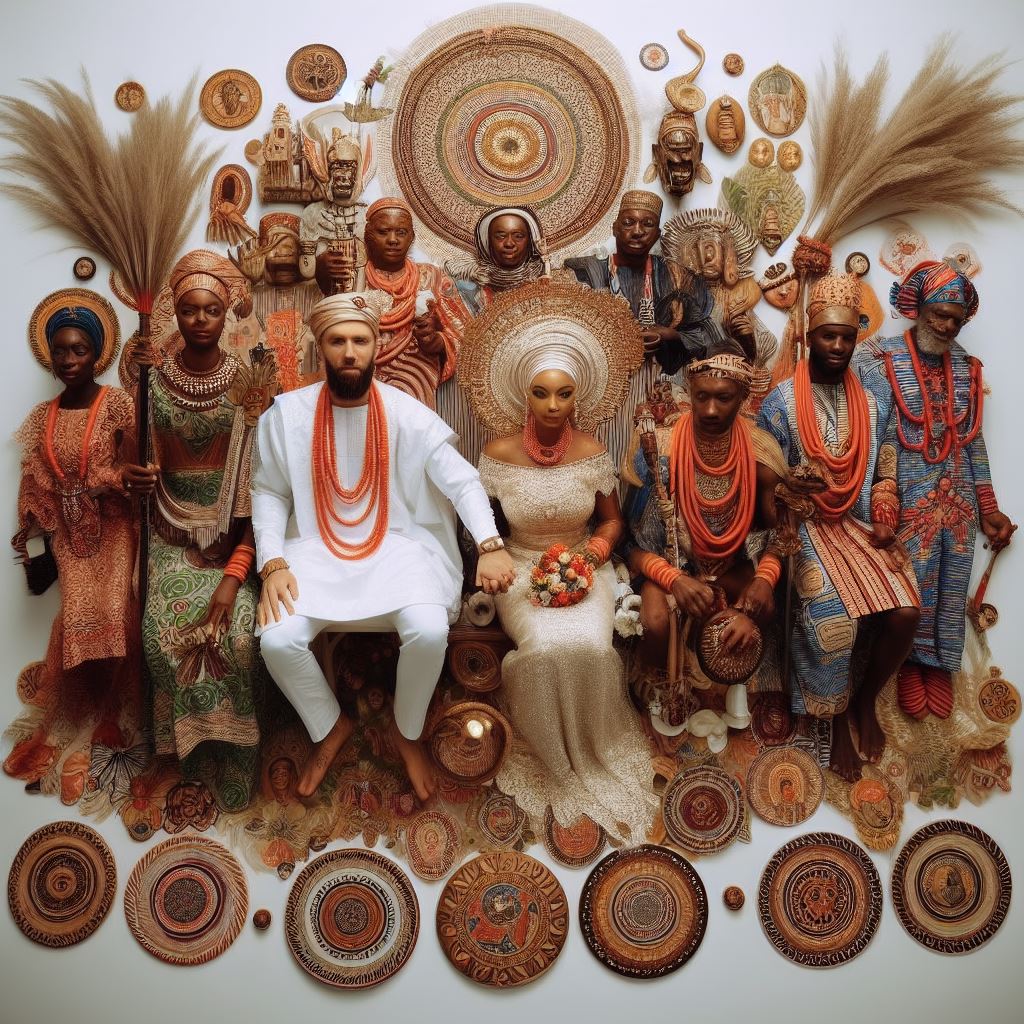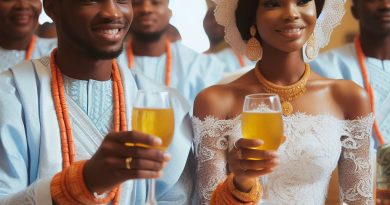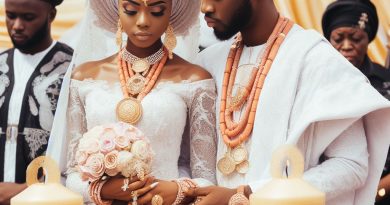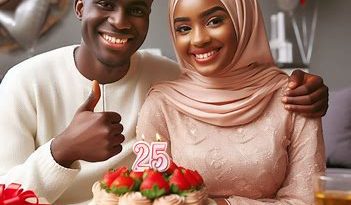Marriage Rituals & Traditions: A Deep Dive into Nigeria
Last Updated on October 17, 2023
Introduction
Marriage rituals and traditions hold significant importance in Nigeria, showcasing the country’s rich cultural diversity.
With various ethnic groups, Nigeria offers a tapestry of customs and practices that vary from region to region.
Historical Background of Marriage in Nigeria
Marriage in Nigeria echoes ancient customs, deeply woven into the fabric of familial and communal bonds.
From its inception, marriage extended beyond the couple, uniting families, tribes, and communities. Elders orchestrated unions, weighing social status, wealth, and lineage.
Diverse customs reflected Nigeria’s cultural mosaic.
The Yoruba’s “ilé-iyáwó” involved the meticulous preparation of the bride, with the groom’s family presenting gifts.
The Igbo celebrated the “igba nkwu,” symbolizing union acceptance through the exchange of palm wine.
Colonization ushered Western influences, transforming ceremonies.
Christianity introduced white gowns and vows in churches, coexisting with traditional practices.
British-imposed monogamy replaced polygamy, emphasizing individualism in marriage.
Despite these shifts, Nigerian marriage traditions endure, safeguarding cultural legacies and reinforcing familial bonds.
Today, these customs remain vital, honoring the past while adapting to the ever-evolving landscape of Nigerian society.
The Influence of Colonization and Western Culture on Nigerian Marriage Practices
The influence of colonization and Western culture on Nigerian marriage practices cannot be overstated.
It brought about a cultural shift and altered the traditional customs in significant ways.
One of the primary effects of colonization was the rise of Christianity as a dominant religion in Nigeria.
With Christianity came the introduction of Western ideas about marriage, such as monogamy and religious ceremonies. This led to a blending of Western practices with existing traditional customs.
Another impact of colonization was the imposition of British laws and regulations regarding marriage.
The British legal system replaced customary laws, and individuals were required to adhere to the new norms. This shift contributed to changes in the legal recognition and formalization of marriages.
Furthermore, Western education spread throughout Nigeria during colonization, bringing new perspectives on relationships and gender roles.
Western ideals of love, companionship, and equality between spouses began to influence Nigerian views on marriage, challenging traditional gender roles and power dynamics.
It is important to note that while colonization and Western culture did bring about changes, Nigerian marriage practices have also been resilient.
Many couples continue to incorporate traditional customs alongside Western elements into their wedding ceremonies.
The historical background of marriage in Nigeria reflects a rich tapestry of ancient traditions, customs, and the influence of colonization and Western culture.
Marriage in Nigeria has undergone significant changes over time, with a shift towards embracing Christianity, Western-style weddings, and monogamy.
However, the importance of preserving cultural heritage remains strong, and many Nigerians continue to honor their traditional customs alongside Western influences.
Marriage ceremonies in Nigeria are a reflection of the country’s diverse ethnic groups and a celebration of love, unity, and family.
Pre-Wedding Rituals and Traditions
The Nigerian engagement ceremony kicks off the marital journey, fostering family ties through dowry negotiations and introductions.
Yoruba traditions embrace joy as families exchange gifts, formalizing the union with vibrant attire, music, and feasting.
Igbo customs spotlight bride price talks and a symbolic wine ceremony, demonstrating commitment, familial values, and the bride’s nurturing role.
The negotiation process involves gifts, symbolizing mutual acceptance and goodwill between families. The colorful ceremony is a cultural celebration, uniting families.
Yoruba engagement sees couples donning traditional attire amid cheers, emphasizing cultural pride during the familial introduction.
Igbo wine ceremonies symbolize the bride’s commitment, carrying a cup to her groom, showcasing her readiness for marital responsibilities.
These rituals are not just celebrations; they preserve Nigeria’s cultural fabric, fostering lasting marriages rooted in tradition and community bonds.
Read: Harmonizing Love and Faith: Nigerian Couple’s Anniversary Prayer Rituals
Wedding Ceremony
A Nigerian wedding ceremony is a vibrant and culturally rich event that encompasses both traditional and religious elements.
The attire worn during a Nigerian wedding ceremony is a reflection of the country’s diverse cultures and traditions.
Describe the typical Nigerian wedding ceremony (Traditional and religious elements, attire, etc.)
Traditional Nigerian wedding attire varies among different ethnic groups, with each having its own unique style and significance.
- In Yoruba traditional weddings, the bride usually wears a gele (head tie) and an iro (wrapper) made of aso-oke fabric.
- The groom may wear a buba (loose-fitting top) and sokoto (trousers) made from the same aso-oke fabric.
- For Igbo traditional weddings, the bride typically wears a two-piece outfit called the george wrapper and blouse, adorned with intricate designs.
- The groom wears a matching isiagu (traditional Igbo top) and trousers.
These traditional attires not only showcase the beauty of Nigerian cultures but also symbolize the couple’s heritage and pride.
Importance of cultural specificities in Nigerian weddings (e.g., Yoruba traditional wedding attire, Igbo traditional wedding dances)
Another significant aspect of Nigerian weddings is the inclusion of cultural specificities, such as traditional wedding dances.
In Igbo weddings, the Igba Nkwu ceremony involves vibrant dances accompanied by traditional music.
The bride and groom, along with their families, participate in lively performances that celebrate their union.
Similarly, Yoruba weddings feature the popular traditional dance known as the Alaga Ijoko.
This dance is performed by the Alaga, a renowned figure in Yoruba weddings who acts as the master of ceremonies.
These traditional dances not only entertain the guests but also serve as a way to preserve and pass down cultural heritage.
The importance of cultural specificities in Nigerian weddings cannot be overstated.
They bring a sense of identity and belonging, strengthen family ties, and create a unique experience for the couple and their guests.
Moreover, Nigerian weddings are a perfect fusion of tradition and religion, incorporating both elements seamlessly.
The religious aspect of a Nigerian wedding can vary depending on the couple’s faith.
For Christian weddings, a church ceremony is usually observed, followed by the traditional rites and celebrations.
Islamic weddings, on the other hand, follow the customs of traditional Islamic weddings, including the signing of the marriage contract (Nikkah).
Regardless of the religious affiliation, Nigerian weddings often include an array of rituals and ceremonies.
These rituals may include the exchange of vows, the pouring of wine for libation, and the breaking of kola nuts for blessings.
Overall, Nigerian wedding ceremonies are magnificent occasions that celebrate love, culture, and unity.
They showcase the richness of Nigerian traditions through intricate attires, captivating dances, and the fusion of religious and cultural elements.
Attending a Nigerian wedding is not just an event; it is an immersive experience that leaves a lasting impression.
Read: How Religion Impacts Marriage Counseling in Nigeria

Post-Wedding Rituals and Traditions
In Nigeria, post-wedding rituals and traditions hold great significance in cementing the marriage bond and celebrating the newlyweds.
Yoruba Traditional Wedding Thanksgiving Ceremony
The Yoruba people of Nigeria have a beautiful tradition of showing appreciation to both families after the wedding.
This thanksgiving ceremony, known as “Eru Iyawo,” is a time for the couple to express gratitude and acknowledge the support of their families.
The families gather together, offering prayers and blessings for the couple’s future happiness and prosperity.
The bride and groom typically dress in traditional Yoruba attire to honor their cultural heritage during this celebration.
Feasting is an integral part of this ceremony, with an array of delicious Yoruba dishes served to guests.
It is a joyous occasion for the families to come together, share laughter, and strengthen the bond between them.
Igbo Traditional “Igba Nkwu” Ceremony
The Igbo people have a post-wedding ceremony called “Igba Nkwu,” which symbolizes the presentation of the new wife to the community.
During this celebration, the bride is adorned with beautiful attire and jewelry, showcasing her status as a married woman.
The groom’s family organizes a grand event where the community can witness the official introduction of their new daughter-in-law.
Traditional dances, music, and performances are an essential part of this ceremony, showcasing the culture and traditions of the Igbo people.
The newly married couple receives blessings from elders and community leaders, wishing them a prosperous and fruitful marriage.
Igba Nkwu is a spectacle of color, cultural pride, and a testament to the community’s support and acceptance of the couple.
Other Post-Wedding Customs in Nigeria
In addition to the Yoruba and Igbo traditions, Nigeria is rich in various post-wedding customs that differ across ethnic groups.
It is common for newlyweds to visit their extended families after the wedding to show respect and gratitude.
These visits serve as an opportunity for the families to bond further, strengthen relationships, and offer blessings to the couple.
Naming ceremonies for the couple’s first child are also significant post-wedding rituals in Nigerian culture.
This ceremony is a time for celebration, where the child’s name is officially announced and blessings are bestowed upon the newborn.
Throughout Nigeria, sharing meals, exchanging gifts, and engaging in lively conversations continue as post-wedding customs.
These traditions serve as reminders of the importance of community, family, and cultural heritage in Nigerian society.
In fact, post-wedding rituals and traditions in Nigeria play a vital role in honoring families, celebrating love, and preserving cultural identity.
Whether it is the Yoruba thanksgiving ceremony, the Igbo “Igba Nkwu” celebration, or other customs, these rituals strengthen the bond between families and create lasting memories for the newlyweds.
They serve as a reminder of the rich cultural diversity that exists within Nigeria and proudly showcase the country’s traditions to the world.
Read: Cost of Marriage Counseling in Nigeria: Budgeting for Harmony
Challenges and Evolution in Marriage Rituals
In Nigeria, marriage rituals have undergone significant changes due to the influences of modernity.
These transformations have presented both challenges and conflicts for couples who seek to maintain traditional customs in a rapidly evolving society.
Societal Shift
The changing dynamics of marriage rituals in Nigeria can be attributed to the shift in societal norms and values.
With globalization and urbanization, traditional customs are being challenged and replaced with more modern practices.
Western Influences
The influx of Western culture has played a major role in reshaping marriage rituals in Nigeria.
The influence can be seen in the adoption of extravagant white weddings, engagement rings, and lavish receptions.
Expensive Celebrations
Traditional customs often require elaborate ceremonies that can be financially burdensome for couples, particularly when combined with the modern elements they wish to incorporate.
Generational Differences
Older generations may hold onto traditional practices, while younger couples may want to embrace more contemporary elements. This generational difference can create conflict and disagreements within families.
Pressure to Conform
Couples who wish to maintain traditional customs face immense pressure from society and family members, as there is an expectation to conform to modern wedding trends.
Balancing Traditional and Modern
For couples who want to uphold their cultural heritage while incorporating modern elements, striking a balance becomes crucial to avoiding conflicts and ensuring a meaningful wedding ceremony.
Negotiating with Families
In some cases, couples may have to negotiate with their families to find a compromise that respects both traditional and modern values, avoiding potential family rifts.
Educating Others
One way to overcome challenges is through education and open communication, helping others understand the importance of preserving cultural traditions while embracing new ideas.
Redefining Traditions
As marriage rituals evolve, it is essential to redefine traditions in a way that maintains their essence while adapting to the realities of a modern society.
Creating New Customs
Some couples have chosen to create new customs that blend their cultural heritage with modern influences, offering a unique and meaningful wedding experience.
Need for Flexibility
Flexibility is essential in navigating the challenges of evolving marriage rituals, allowing couples to adapt their ceremonies to suit their personal preferences and family expectations.
Embracing Diversity
Nigeria is a diverse country with numerous ethnic groups. Embracing the diversity of marriage rituals can lead to a more inclusive society that respects and cherishes unique customs.
Preserving Cultural Identity
While embracing change, it is crucial to preserve the cultural identity associated with marriage rituals, ensuring that future generations have a connection to their roots.
Empowering Couples
By empowering couples to make informed choices about their wedding rituals, they can actively participate in shaping the future of marriage traditions in Nigeria.
Celebrating Love and Unity
Ultimately, regardless of the challenges and conflicts faced, marriage rituals serve as a celebration of love and unity, bridging the gap between tradition and modernity.
In general, the evolution of marriage rituals in Nigeria presents challenges and conflicts for couples who seek to maintain traditional customs in a modern society.
However, by navigating the shifting dynamics, negotiating with families, and embracing cultural diversity, couples can create meaningful ceremonies that honor their heritage while incorporating elements of modernity.
Read: Understanding the Dynamics of Marriage Life in Nigeria
Conclusion
Marriage rituals play a vital role in preserving Nigeria’s rich cultural heritage.
These traditions serve as a thread that connects generations, fostering a sense of unity and continuity.
Understanding and appreciating the diverse marriage traditions in Nigeria is crucial for cultural appreciation and respect.
By embracing these rituals, Nigerians can honor their ancestors and maintain a strong sense of identity.
Moreover, these customs provide a foundation for community bonding and social cohesion.
Marriage rituals in Nigeria are not just mere ceremonies but are deeply rooted in cultural values.
They reflect the beliefs, norms, and customs that have been passed down for centuries.
Thus, it is imperative to recognize the significance of these rituals in preserving the unique heritage of the nation.
By acknowledging and respecting the diversity of marriage traditions, we contribute to a more inclusive and harmonious society.
Ultimately, marriage rituals serve as a bridge between the past, present, and future, keeping Nigeria’s cultural tapestry intact.
Therefore, valuing and understanding these traditions is essential for preserving the soul of Nigeria.


